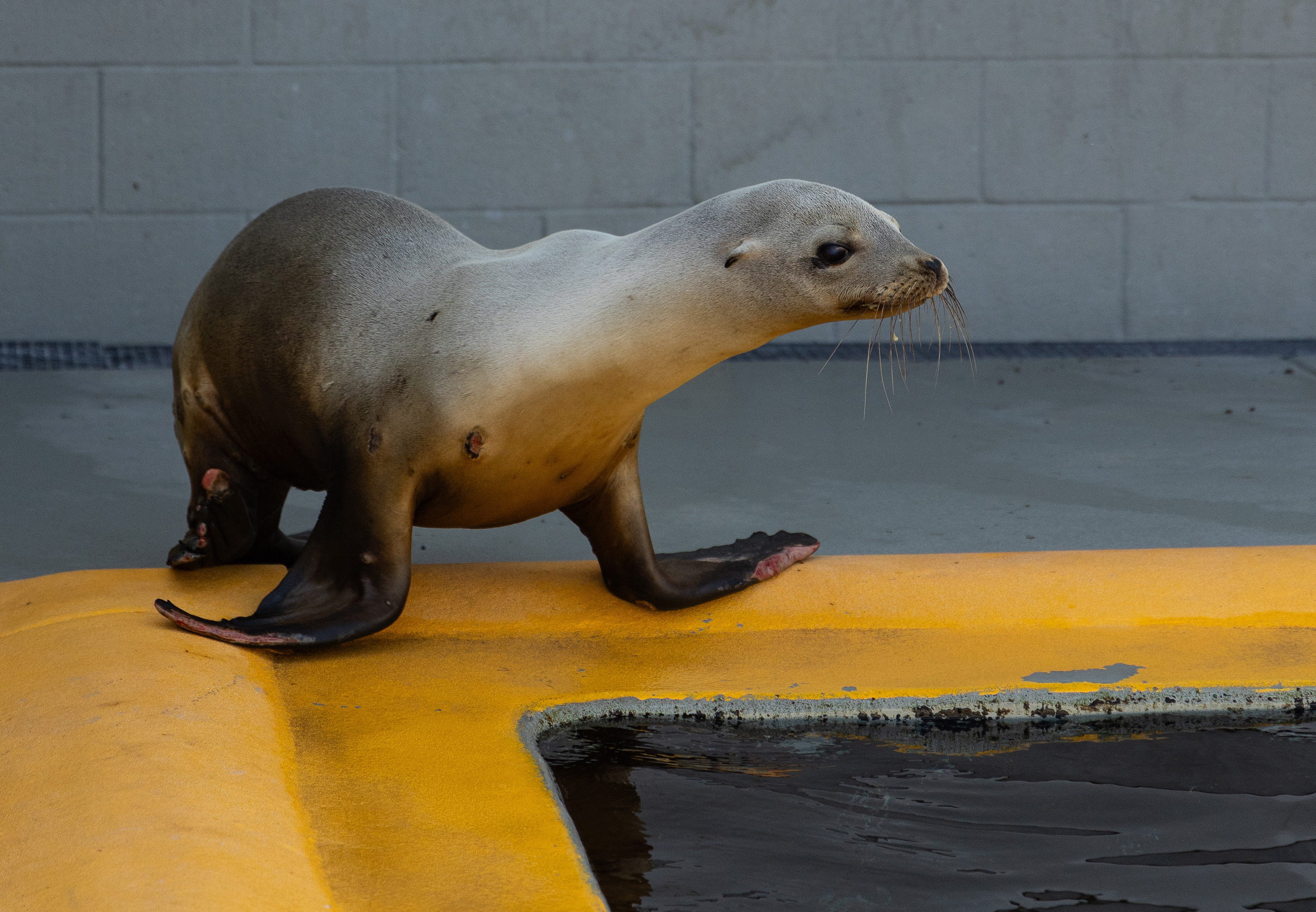The layoff of 22 employees last week at the San Francisco SPCA was just the latest blow to a cherished organization.
As critics accused the animal-rescue organization of spending too much money on its $27 million hospital and on executive salaries, and abandoning animals that could be placed in homes, the nonprofit's executives defended its legacy and mission.
"We accept animals based on their health and their behavior," said Jan McHugh-Smith, president of the SF SPCA. "They have to qualify for the program. It's a limited-admission shelter and we can only take as many animals as we can adopt."
For a homeless animal, the SPCA is the ultimate retreat. With a brand-new facility, the pricey hospital, and huge donor support from the likes of PeopleSoft founder Dave Duffield, the chances of getting adopted here are pretty good. The SPCA adopted out 4,200 animals last year, a record number.
Rival animal-rescue groups argue that that's because the SPCA stacks the odds. "What they want are cute, adoptable dogs," said Kim Durney of Grateful Dogs Rescue.
Last year, the SPCA accepted only about 15 percent of San Francisco's homeless dogs. Groups like Durney's took in as many of the rest as they could in an effort to keep them from being euthanized. Grateful Dogs Rescue adopted out 150 dogs last year from San Francisco's Animal Care and Control, while the SPCA adopted out 160 from ACC -- close to the same number, Durney notes.
"They really aren't making any effort to make perfectly treatable dogs more attractive to the public," said Durney.
Local
Anne Zelinsky adopted a dog, Angel, from Grateful Dogs, who'd been rejected by the SPCA. "She'd been beautifully trained," said Zelinsky. "You'd tell her 'sit,' she'd sit. It's kind of scary, because she was almost euthanized."
The SPCA recently announced it would part ways with the Academy for Dog Trainers and its two-person staff, which had long been affiliated with the organization. It's not clear if the cutbacks were related to last week's layoffs, which affected 15 percent of the SPCA's staff.
But a reduction in resources dedicated to training would seem like a move to reduce costs at the expense of animals which might be more expensive to place in homes.
"The burden has really fallen on our shoulders, and we are resource-strapped right now," said Lana Bajsel of Give Me Shelter Rescue. "We are stretched to the max."
As is the San Francisco SPCA. Its annual budget is $16 million, and it's running a $3.5 million deficit.
Dotcom largesse like Duffield's is rarer these days.
The SPCA has cut a program for hearing-assistance dogs as well as the trainer program. Its recent round of layoffs were the second in the past four months.
"Sometimes we have to change and change is needed here," said McHugh-Smith.
But McHugh-Smith isn't changing some things, like the nonprofit's support of its hospital. A shiny gem, the SPCA is proud to show it off. But it loses $1 million a year on $5 million in revenue.
"It's not providing a cash profit but it is providing a significant amount of care for the shelter medicine program as well as people needing financial assistance," said McHugh-Smith. She added that the SPCA would continue to take the loss because the services the hospital provide are so key to the SPCA's mission.
Its spending like that which has polarized the animal-welfare community.
McHugh-Smith said that rival groups are "unhappy because they would like to see us do even more."
"I am always concerned when we have animosity because it doesn't help the animals," said McHugh-Smith. "I wish we could just agree to disagree and do the work we need to do to get the animals homes."
Kin Tso, a former SPCA volunteer, said that the SPCA is only concerned with finding homes for a select group of animals and that the priority for "the current administration" is the adoption numbers.
"Our philosophy is to save as many lives as possible so we use our resources for those animals that we feel have the best opportunity to find homes," said McHugh-Smith.
For some of those that don't, rescue groups with less funding and hype step in. And the rest are put down.



